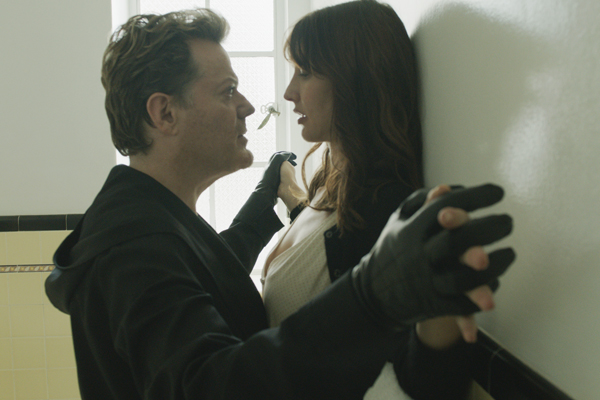 Zoe Cassavetes’ 2007 debut feature “Broken English,” starring Parker Posey, is an astutely realized portrait of a woman struggling to find herself while searching for love. It’s an underrated picture, and eight years has been far too long between features for Cassavetes, who debuted her second film “Day Out of Days,” at the Los Angeles Film Festival this week. While following a similar theme of a woman adrift and searching for meaning, this film replaces work in place of love as a self-worth defining element. For actresses in Hollywood, their work isn’t always in their control, due to sexism, ageism and other outside influences, and Cassavetes deftly explores these issues with a great deal of nuance and an unflinching eye.
Zoe Cassavetes’ 2007 debut feature “Broken English,” starring Parker Posey, is an astutely realized portrait of a woman struggling to find herself while searching for love. It’s an underrated picture, and eight years has been far too long between features for Cassavetes, who debuted her second film “Day Out of Days,” at the Los Angeles Film Festival this week. While following a similar theme of a woman adrift and searching for meaning, this film replaces work in place of love as a self-worth defining element. For actresses in Hollywood, their work isn’t always in their control, due to sexism, ageism and other outside influences, and Cassavetes deftly explores these issues with a great deal of nuance and an unflinching eye.
READ MORE: 10 Female Directors Who Deserve More Attention from Hollywood
Alexia Landeau, who co-wrote the film with Cassavetes, stars as Mia Roarke, a former Hollywood starlet who finds herself where she least expected to be at 40: single, no children, and struggling to find work. Formerly one-half of a celebrity power couple, she is reduced to reading about her ex-husband’s new fiancé in tabloids while lounging around the house they shared. Her agent Annabel (Brooke Smith) still calls and sends her out on auditions, which more often than not end up being humiliating, fruitless affairs.
Mia is belittled and subjected to the whims of many stereotypical male Hollywood figures, from the enfant terrible to the esoteric to the egotistical. The situations almost seem to be parodies, but anyone with a passing knowledge of Hollywood realities knows these are too true to be funny. There’s the Lars Von Trier-esque madman director Dag (Eddie Izzard), who plies her with martinis and cocaine during a meeting about his new “hardcore” movie. There’s the hot shot TV boy wonder E.J. (Guy Burnet) who wants her to play a “kooky, hot mom” and shouts “FUNNY!” at her during an audition. And then there’s the moody low-budget horror director Tark (Vincent Kartheiser), a brat in a hat and an absolute monster. But it’s not just men who define the sexist system —women are also included in the patriarchal demands, including her agent and other actresses who are better at playing by the rules of the game.
Mia’s no saint though. She pops pills, drinks too much, has a codependent relationship with her mother Kathy (Melanie Griffith), also a substance abuser. Mia seems bewildered by a world that wants her to be “pulled together” when she’s clearly coming loose. She seems to either be drowning or happily swimming in the choppy waters around her—one moment she’s pawning her jewelry, the next she’s running rampant through a gifting suite. It’s the perfect depiction of the easy come, easy go nature of stardom and worth in Hollywood; of being broke in designer clothes.
Landeau is gracious and poised in her performance as Mia, but she doesn’t disguise flaws and weaknesses, creating a deeply realized, subtle character. Cassavetes neither makes her leading lady the butt of the joke nor regards her as beyond redemption. Despite the trials and indignities, she is never treated without humanity, and ultimately that is an important theme in the film: Mia is just a person trying to make it through the day, like we all are.
The ebb and flow of fortune is a pattern that marks the entire film, and when Mia considers leaving it all behind, you want to grab her by the shoulders and shout, “YES. GO. FAR AWAY.” But with a few small steps forward, she can be sucked right back into that world, small victories obscuring the memory of past failures. And while she might grow or assert herself, the system stays the same. Cassavetes’ film is a searing indictment of Hollywood’s treatment of women and an attempt to explore the humanity of those who are denied it. But one wonders if Hollywood will even be able to hear what she’s saying. The Hollywood of “Day Out of Days” cannot. [B+]






Can\’t wait to see this movie.